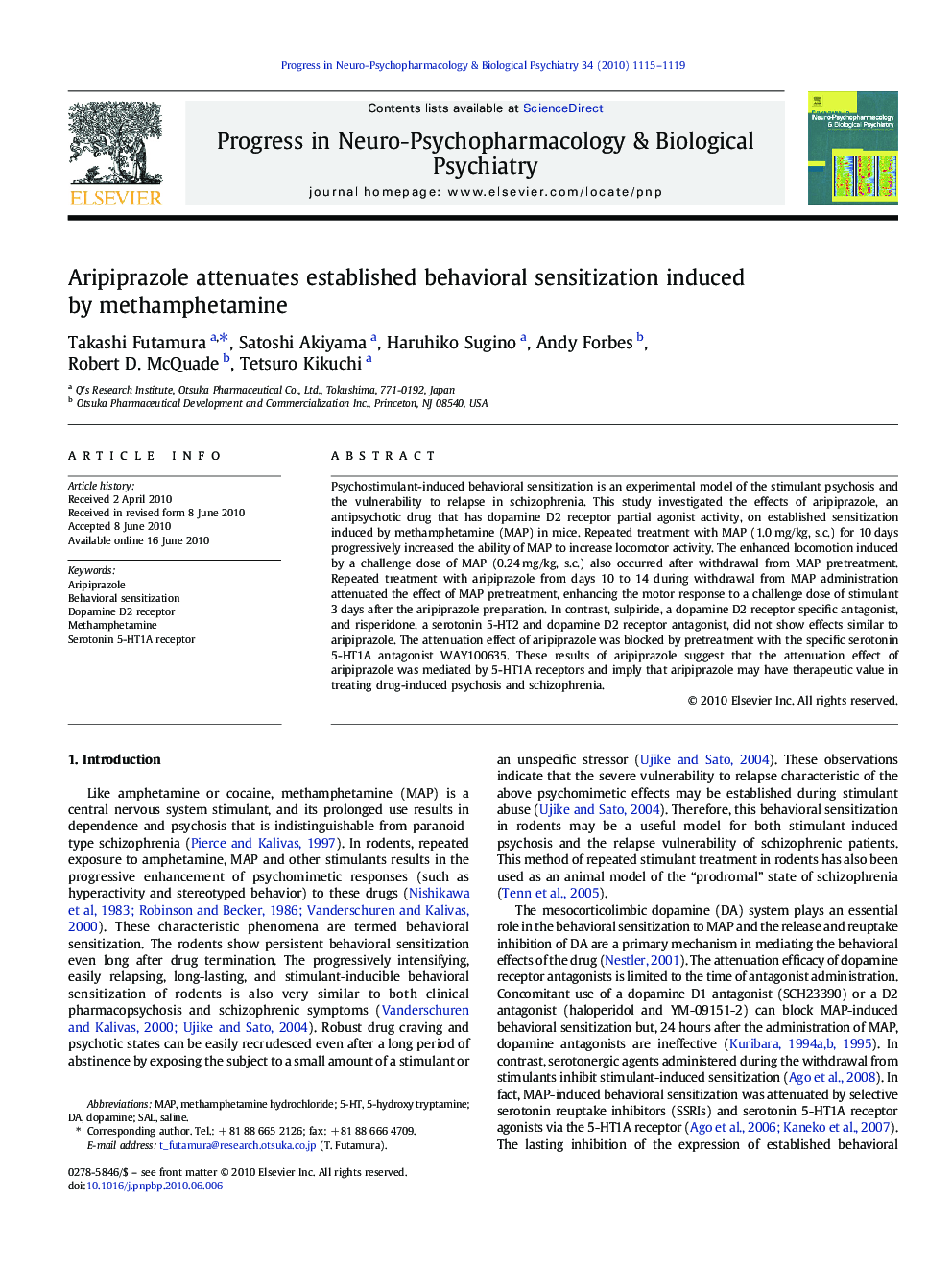| Article ID | Journal | Published Year | Pages | File Type |
|---|---|---|---|---|
| 2565399 | Progress in Neuro-Psychopharmacology and Biological Psychiatry | 2010 | 5 Pages |
Psychostimulant-induced behavioral sensitization is an experimental model of the stimulant psychosis and the vulnerability to relapse in schizophrenia. This study investigated the effects of aripiprazole, an antipsychotic drug that has dopamine D2 receptor partial agonist activity, on established sensitization induced by methamphetamine (MAP) in mice. Repeated treatment with MAP (1.0 mg/kg, s.c.) for 10 days progressively increased the ability of MAP to increase locomotor activity. The enhanced locomotion induced by a challenge dose of MAP (0.24 mg/kg, s.c.) also occurred after withdrawal from MAP pretreatment. Repeated treatment with aripiprazole from days 10 to 14 during withdrawal from MAP administration attenuated the effect of MAP pretreatment, enhancing the motor response to a challenge dose of stimulant 3 days after the aripiprazole preparation. In contrast, sulpiride, a dopamine D2 receptor specific antagonist, and risperidone, a serotonin 5-HT2 and dopamine D2 receptor antagonist, did not show effects similar to aripiprazole. The attenuation effect of aripiprazole was blocked by pretreatment with the specific serotonin 5-HT1A antagonist WAY100635. These results of aripiprazole suggest that the attenuation effect of aripiprazole was mediated by 5-HT1A receptors and imply that aripiprazole may have therapeutic value in treating drug-induced psychosis and schizophrenia.
